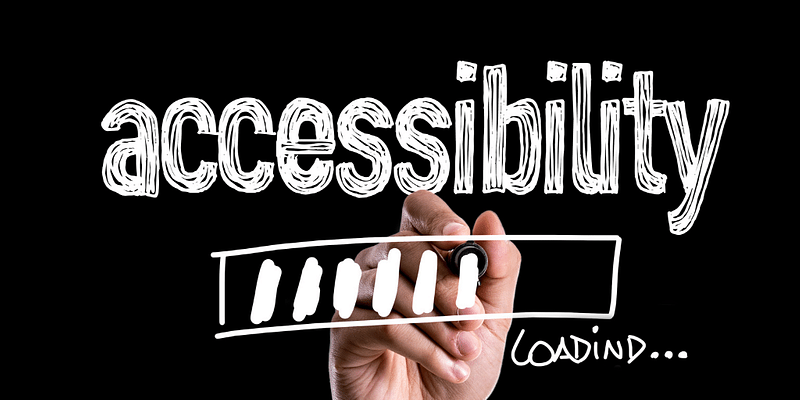Global Accessibility Awareness Day, May 2023
1 June 2023 - Kieran Rooney

User Vision recently celebrated Global Accessibility Awareness Day (GAAD) by hosting another open-house event in our Edinburgh HQ, hosting a panel and an empathy lab . GAAD aims to raise awareness of digital accessibility and foster inclusivity throughout the entire digital product design process. The event ignited meaningful discussions, provided attendees the chance to use assistive technologies as part of our empathy lab and see how detrimental poor accessibility can be for 1 in 5 people in the UK with a disability.
The highlight of the event was a compelling panel discussion titled "Creating Accessible Digital Experiences". The panel brought together experts from both public and private sectors, each offering unique perspectives on digital accessibility and inclusion. The panellists included Graham Gunning, Vice Chairman at Triple Tap Tech, Mark Palmer, Accessibility Lead at the Scottish Government, Karen Willox, Digital Product Optimisation Manager at People's Postcode Lottery, as well as Harjit Dhanda, one of User Vision's experienced Accessibility Consutlants, and hosted by User Vision’s Principal Accessibility Consultant, Keith Allan.
The panellists shared their invaluable insights on the challenges and opportunities surrounding digital accessibility. Harjit shed light on the importance of accessibility from her perspective as a consultant working iwth our clients and seeing their challenges daily. Graham provided a dual perspective as both an individual with a visual impairment, reliant on assistive technology, and as someone who delivers accessibility services through his company, Triple Tap Tech. Mark, representing the Scottish Government, emphasized the government's commitment to fostering inclusive digital experiences, but also the hurdles involved. Karen explored the tangible impacts of accessibility within the digital product landscape, offering valuable insights into People's Postcode Lottery's ongoing efforts to foster inclusive experiences. She highlighted the hurdles encountered during this journey and shared notable success stories that have emerged as a result.
One of the fundamental takeaways from the panel discussion was the critical need for accessibility to be embedded right from the initial stages of design. The panellists unanimously emphasized that retrofitting accessibility features is not only challenging but also insufficient to create truly inclusive digital experiences. By incorporating accessibility principles at the very start, organisations can proactively address barriers and ensure that their digital products cater to all user needs.
Following the panel discussion, attendees had the opportunity to attend our empathy workshop that gave attendees the opportunity to get a hands-on experience of different accessibility challenges. The workshop was comprised of four stations, each designed to simulate specific impairments and demonstrate the corresponding assistive technologies.
At the visual impairment station, participants wore glasses that simulated various visual impairments, such as astigmatism, cataracts, and complete blindness. Through this exercise, attendees had the opportunity to develop a understanding of the challenges confronted by individuals with visual impairments when using digital services. Participants had the opportunity to experience the diverse spectrum of visual impairments and understand that there is no one-size-fits-all solution to addressing accessibility issues related to visual impairments. From conversations we had there was a sense that participants left with deeper appreciation for the complexities involved in creating inclusive digital experiences and instilled in them a strong commitment to improving the accessibility in their own work.
The motor impairment station utilised the Cambridge simulation gloves that provide participants with insight on how limited dexterity can affect interactions with certain interfaces. Participants experienced the limitations and frustrations that individuals with such disabilities encounter when using digital devices. This exercise highlighted the importance of designing interfaces that are accessible and inclusive for users with diverse mobility needs.
The desktop and mobile screen reader stations offered hands-on experience with screen reading technologies. This eye-opening experience ignited vibrant discussions among developers, who were inspired to better understand how to create an accessible experience for screen reader users. During the desktop screen reader station, participants were tasked with navigating two forms developed by our team. One of the forms, although visually indistinguishable, presented substantial accessibility challenges due to the improper use of HTML. In contrast, the accessible form was properly programmed and associated, offering screen reader users all the necessary information to successfully complete the task.
Our empathy workshops never fail to spark vibrant discussions with participants. The high level of engagement and the profound impact these workshops have on attendees is what makes us at User Vision enjoy putting these on so much! Beyond exploring the assistive technologies, participants eagerly share their own experiences and progress in their accessibility journeys. They openly discuss the challenges they face, allowing for a rich exchange of knowledge and ideas. It is immensely gratifying to see participants leave the workshop not only having learned something new but also filled with enthusiasm and determination to advance accessibility in their respective domains.
We really enjoyed putting this event on and speaking to everyone that attended and are looking forward to hosting more events later this year. Keep an eye on our Training page to see what's coming up.
If you wanted to see our panel in action - we've uploaded it for you to our User Vision You Tube Channel(this will open in a new window).
You might also be interested in...
Understanding Accessibility Drift - And How to Prevent It
12 February 2026Why accessibility standards erode after audits, and what continuous monitoring can do about it.
Read the article: Understanding Accessibility Drift - And How to Prevent ItAccessibility Toolkit - Access360 Managed Service
5 January 2026Continuous WCAG monitoring, expert audits, and capability building to maintain sustainable digital accessibility .
Read the article: Accessibility Toolkit - Access360 Managed ServiceWhen Did You Last Update Your Accessibility Statement?
11 December 2025Your accessibility statement says more about your organisation than you think. Learn why keeping it current matters for trust, compliance, and user experience—and what UK, EU, and US regulations expect.
Read the article: When Did You Last Update Your Accessibility Statement?